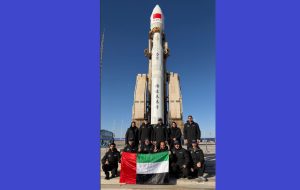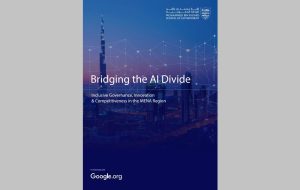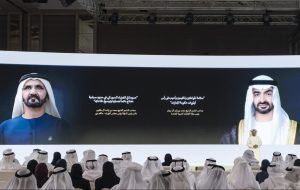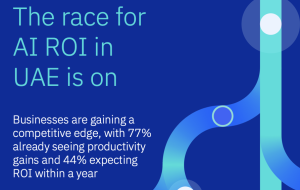The United Arab Emirates continues to consolidate its position as a global leader in digital transformation, driven by forward-looking strategies and ambitious national policies that place innovation at the heart of sustainable development and economic competitiveness.
Government and private institutions across the country follow a “human-first” approach, ensuring that people are both the drivers and primary beneficiaries of digital transformation. International reports consistently highlight the UAE’s rapid progress in this field, underscoring its strong performance across prestigious global indices and reinforcing its leadership in modern technology and smart transformation.
According to the United Nations E-Government Survey 2024, the UAE ranked first worldwide in the Telecommunications Infrastructure Index, achieving a perfect score of 100 per cent. This milestone reflects the country’s advanced digital networks, high connectivity efficiency, and overall maturity of its digital infrastructure.
In parallel, the Speedtest Global Index by Ookla confirmed the UAE’s sustained global leadership in mobile internet speed, maintaining first place worldwide from July 2024 to June 2025. The most recent update in June reported an average mobile download speed of 546.14 Mbps—significantly ahead of the closest global competitors.
The scale of digital adoption has also been evident in government services. In 2024 alone, 173.7 million digital government transactions were processed, benefiting more than 57 million users across 1,419 digital services, with a satisfaction rate of 91 per cent.
On the city level, the UAE’s progress has also been recognised globally. The IMD Smart City Index 2025 ranked Dubai fourth worldwide and first in the Arab world, while Abu Dhabi secured fifth place globally. These rankings reflect advancements in smart infrastructure, digital services, and quality of life.
The UAE also topped the region in the Government AI Readiness Index 2024, issued by Oxford Insights, which evaluated 193 countries. The ranking was based on government efficiency, technological development, data availability, and infrastructure—all areas in which the UAE continues to excel.
The Interregional Center for Strategic Analysis in Abu Dhabi noted that the UAE is moving steadily towards regional leadership in artificial intelligence, powered by targeted investments in research, talent development, and innovation.
Industry experts emphasise that the UAE’s role extends beyond digital transformation to setting global benchmarks for holistic innovation. Rasha Abdo, Director of Strategic Accounts for the Middle East and North Africa at Infobip, highlighted that the UAE’s full score in the Telecommunications Infrastructure Index reflects the strength of its digital networks. She also pointed to pioneering initiatives such as Dubai’s “Services 360” policy, which provides proactive, integrated, and human-centred digital services across the public and private sectors.
Abdo noted that this framework represents a global model for delivering AI-powered, automated, and people-first digital services, particularly in banking, retail, and healthcare.
Echoing this view, Amjad Al Sabah, Vice President for the Middle East and Africa at Sprinklr, stated that the UAE’s digital ecosystem has matured beyond simple technology adoption to creating personalised, predictive experiences that meet individual needs. He emphasised that human-centred service design and digital transformation have become key drivers of the UAE’s economic growth.
Looking ahead, the UAE aims to double the contribution of the digital economy to its GDP by 2030, in line with forecasts that artificial intelligence alone will account for 13.6 per cent of GDP—equivalent to USD 100 billion. This ambition reflects the nation’s broader strategy to diversify its economy and sustain long-term innovation.














